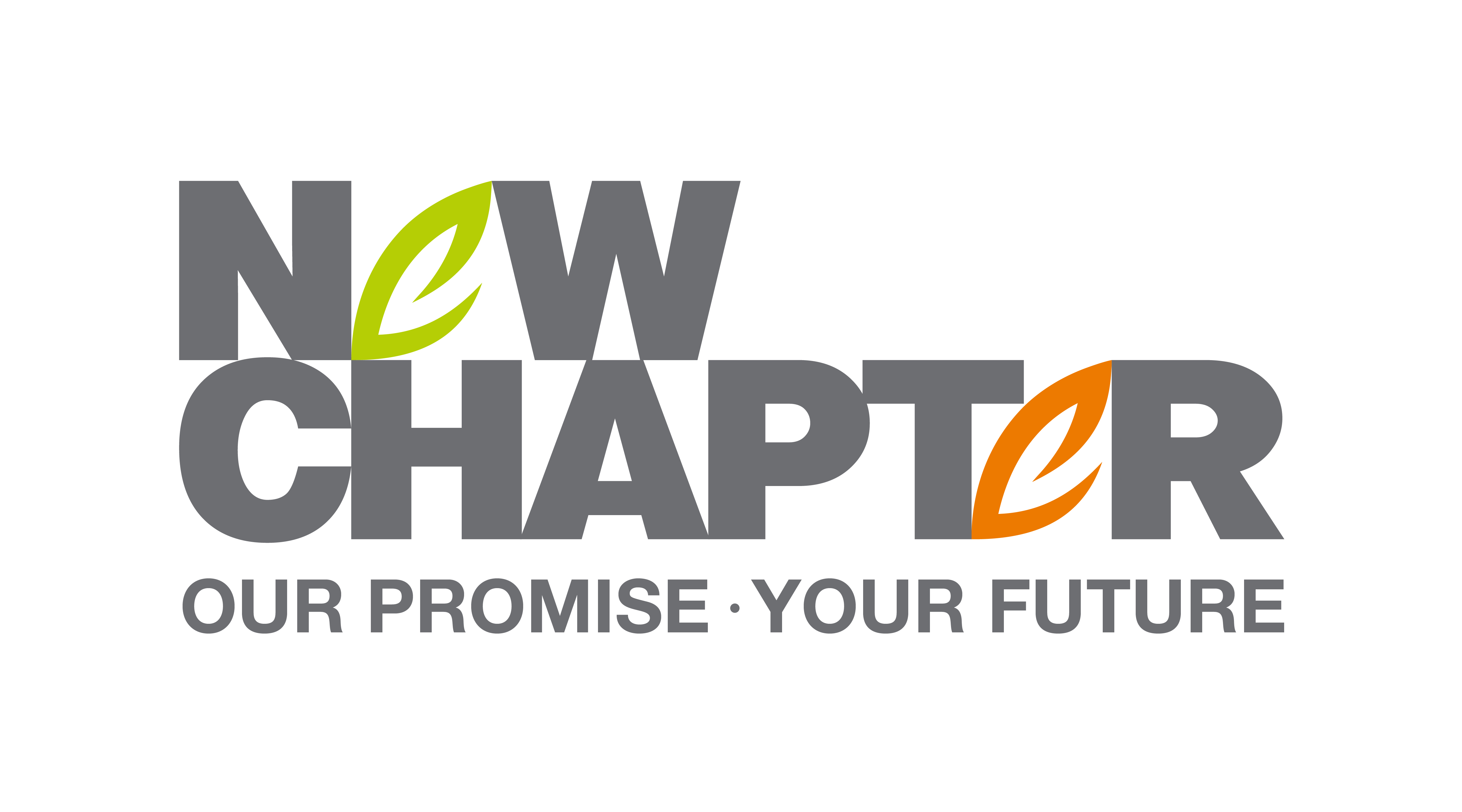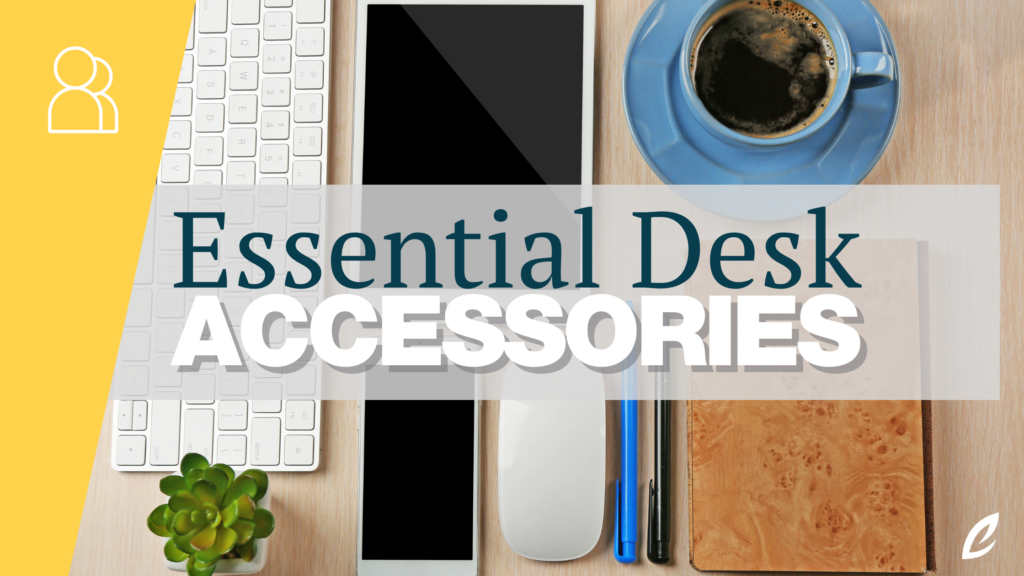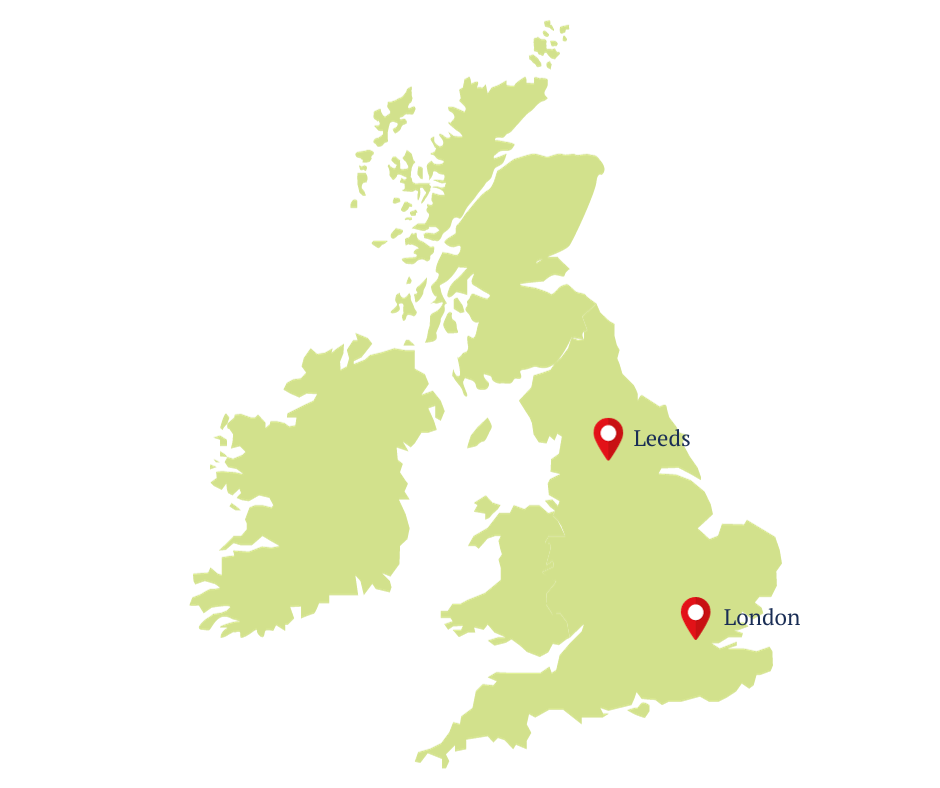Category: Top Tips
-
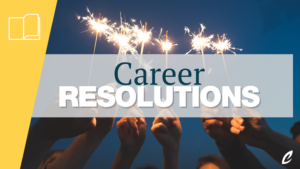
Navigating Career Resolutions 2024
Continue ReadingNavigating Career Resolutions 2024
Christmas is just a few days away, but let’s shift our focus to the fast-approaching New Year. Many people set New Year’s Resolutions each year. We have previously discussed how forgoing resolutions can be beneficial, as they may lead to demotivation when they aren’t achieved. However, if you prefer to have goals in place, establishing healthy practices, particularly for your career, can pave the way for a successful 2024.
Before setting your goals, consider these key points to ensure you feel ready for a new challenge.
Reflecting on Career Satisfaction
The beginning of a new year offers an opportunity to assess your career satisfaction. Reflect on your current role—does it align with your aspirations and values? Consider the aspects of your job that bring you enjoy, and conversely, identify areas that leave you wanting more. This reflection serves as the foundation for establishing your goals in 2024.
Defining Your Career Path
Establishing specific and achievable career goals is crucial to successfully navigate the job market. Whether you’re aiming for a leadership position, exploring a new industry, or enhancing your skills, having clear objectives will steer you in the right direction. Breaking down your goals into smaller steps will make them feel more achievable.

Crafting an Impactful Personal Brand
Your online presence often forms the first impression for potential employers. Take time to polish your personal brand including updating your LinkedIn profile with recent accomplishments and ensuring you have a current CV ready. Refer to our previous blog, ‘a guide to LinkedIn,’ for help with your personal brand.
Strategic Networking
Networking is a powerful tool for career growth. Aim to attend industry events, join professional groups, and engage with mentors. Building genuine connections can lead to valuable insights, job referrals, and mentorship opportunities. Never underestimate the power of a well-cultivated professional network.
Lifelong Learning
Continuous learning is key to staying relevant in today’s rapidly evolving job market. Identify skills that are in demand in your industry and invest in your professional development. Online courses, workshops, and certifications can not only broaden your skill set but also make you a more attractive candidate to prospective employers.

Tailor Your Job Search
Approach your job search strategically. Customise your application materials for each position, emphasising how your skills and experiences align with the specific requirements of the job. Leverage job boards, company websites, and professional networks to identify potential opportunities.
Leveraging Recruitment Agencies
Recruiters are valuable allies in your job search. We have extensive networks and insights into the current job market. Partnering with a reputable consultancy can provide you with access to exclusive job opportunities and streamline the application process. If you’re ready to kickstart your search in 2024, feel free to get in touch with us below.
We have selected a list of the best new year career resolutions;
You could decide to ensure you stretch every hour, get a standing desk, bring your own healthy lunch etc.
Take on learning a new language, new technology, public speaking and more!
Take a LinkedIn branding course, update your profile photo, create an updated CV.
Organise not only your physical files, but all of your online files too.
Take on a free course, or aim to achieve an entirely new certification to add to your CV.
Aim to keep your email inbox organised, try the inbox zero method.
Start networking by attending events, contacting peers and use LinkedIn to connect.
Set your goals based on what you need to do to achieve this.
Keep yourself organised and sort your day to day priorities.
Explore a new path in 2024, contact us today!
Take charge of your professional narrative, set meaningful goals, and navigate the job market with intention. If you need help or have questions, don’t hesitate to contact us.
At New Chapter, we partner with companies in the FMCG & Retail industries. If you’re currently seeking a new opportunity, make sure to contact us on info@newchapter.co.uk or take a look at our current vacancies.
Alternatively, if you just need some specialist advice from experienced recruiters in your industry, we would love to help you out.
Recent Blogs
New Chapter's Fine Wine Specialist Recruiter, Faye Rillstone talks about her career journey and thoughts on current wine recruitment trends.Essential Accessories for Your Desk
May 1, 2024Are you ready to spice up your workspace? Tired of the same dull desk? Here are some cool office items you need to liven up your workspace.How To: Change Industry within FMCG
April 23, 2024Are you planning to switch industries within FMCG? Our guide will help you successfully navigate this transition. -

Talking About Your Weaknesses in Interviews
Continue ReadingInterview Tips: Talking About Your Weaknesses
Now that you know the most effective responses, from our previous blog, and have pinpointed your weaknesses, let’s tackle the hard part, delivering your answer to the interviewer. Here is our tips for answering the classic “What is your greatest weakness?” question.
1. Practice
Whilst practice doesn’t guarantee the perfect response in the interview, it certainly helps you feel more prepared and confident. Although we can’t predict whether this question will come up, it is commonly asked, so the chances are high. It’s normal to stumble or stutter over words, but it is crucial not to completely fumble your response. Doing so may come across as insincere or unprepared, especially with a question like this.
After you’ve drafted your answer, read it in front of a mirror or to a friend. Focus on your delivery and avoid sounding overly scripted. Ensure you’re comfortable with altering your wording and improvising at times; this will make your response sound more natural and less rehearsed.
2. Stick to the point
We don’t want to dwell on our weaknesses; try to keep your answer short, ranging between thirty seconds and one minute. First, directly state your weakness, then use the remainder of your answer to explain what steps you’ve taken or put in place to overcome it.
Explain in simple terms the steps you’ve taken to improve. Remember, your interviewer likely has more pressing questions about your experience, and this answer isn’t as critical as you may think.

3. Understand the interviewer’s intent
Their goal isn’t to intimidate or scare you based on your answer. Asking about weaknesses is simply a way to get to know you. They’re not looking for you to admit that you’re not right for the job – after all, you’re qualified; otherwise, you wouldn’t have made it to the interview stage. They simply want to gauge your self-awareness in identifying areas for growth and assess how you handle feedback.
4. Project confidence
Assuming you’ve practiced, this should flow naturally. Confidence is key when talking about weaknesses, it shows that you are ready to acknowledge your areas for growth. During the interview, be sure to maintain positive body language and eye contact whilst delivering your response. Boost confidence by highlighting and focusing on the progress you’ve already made.

5. Don’t overthink
Here’s the good news: hiring decisions don’t rely on your answer to “What is your weakness?” to make their final decision. If you’re honest and explain your commitment to improvement, this question will likely be low in your interviewer’s notes. So, take a deep breath, and we wish you the best of luck in your interview.
At New Chapter, we partner with companies in the FMCG & Retail industries. If you’re currently seeking a new opportunity, make sure to contact us on info@newchapter.co.uk or take a look at our current vacancies.
Alternatively, if you just need some specialist advice from experienced recruiters in your industry, we would love to help you out.
Recent Blogs
Fine Wine Recruitment | Meet Faye
May 7, 2024New Chapter's Fine Wine Specialist Recruiter, Faye Rillstone talks about her career journey and thoughts on current wine recruitment trends.Essential Accessories for Your Desk
May 1, 2024Are you ready to spice up your workspace? Tired of the same dull desk? Here are some cool office items you need to liven up your workspace.How To: Change Industry within FMCG
April 23, 2024Are you planning to switch industries within FMCG? Our guide will help you successfully navigate this transition. -

Prioritising Mental Health: Best Workplace Benefits
Continue ReadingPrioritising Mental Health: Best Workplace Benefits
Securing a job that prioritises your well-being is more crucial than ever, given the increasing awareness of mental health in the workplace and the range of benefits now available. It’s important to consider not only the salary and job responsibilities but also the perks. These can significantly enhance your overall happiness and satisfaction in both your professional and personal life.
In this blog, we’ll explore the key mental health benefits to keep an eye out for when looking for your next opportunity.
Flexible Work Arrangements
Embracing flexible work arrangements, whether through adaptable work hours or the option to work from home, be it in a hybrid or fully remote capacity, can significantly improve work-life balance and alleviate stress.
Without the need to fit your life around traditional 9-5 office hours, you have the opportunity to create your own schedule. This means your work can align with your lifestyle, allowing more time to excel professionally. No commute or a reduced commute, saves money and also means you have more time for your hobbies.
Wellness Benefits and Resources
Some employers provide wellness programs that include activities like yoga, meditation, or fitness classes. Incentives such as ‘gym lunches’ can be included in these programs, to establish a healthier work-life balance and promote overall mental and physical well-being.
Allowing employees the opportunity to exercise or simply get outside during the day can leave them feeling motivated and refreshed, therefore reducing the likelihood of that afternoon slump.

Access to EAP's and Health Insurance Benefits
Numerous companies provide Employee Assistance Programs that extend confidential counselling and support services to both employees and their families. Additionally, many offer health insurance plans with comprehensive mental health coverage, including therapy, counselling, and psychiatric care. These programs serve as invaluable resources for managing stress, anxiety, or other mental health conditions.
Supportive Company Culture
The culture of a company has a significant impact on your well-being. A positive and forward-thinking business, one that values open communication and teamwork, will create an environment where you not only thrive professionally but also feel heard, supported, and valued. Ultimately a company that prioritises collaborative teamwork and cultivates a positive office environment will naturally attract likewise individuals who share the same values.

Mental Health Days and Paid Time Off
Employers who prioritise your mental health will ensure you have access to allocated paid time off and encourage you to make the most of it. Having dedicated mental health days enables you to focus on your well-being without the financial worry. Companies that acknowledge the importance of these benefits tend to foster a healthier work culture. Allowing employees to reset and recharge, will ultimately enhance overall productivity.
Clear Policies on Workload and Expectations
Establishing transparent expectations is vital for preventing burnout and maintaining good mental health. When responsibilities are communicated clearly and workloads set realistically, it paves the way for a positive and less stressful environment.
On the other hand, an imbalanced workload creates a huge toll on mental health, leading to decreased motivation, increased exhaustion, and a ripple effect on the rest of the team.
As you start your job search, remember that your mental health is just as important as your professional growth and financial stability. Actively seeking positions that prioritise these mental health benefits means you are taking a significant step towards a healthier, more balanced professional journey. Always remember, your well-being matters.
Use our 2023 Salary Survey to gain insight into what benefits other FMCG companies are offering. This ensures you can stay ahead of the market and have a clear picture of what might be on offer to you.
Recent Blogs
Fine Wine Recruitment | Meet Faye
May 7, 2024New Chapter's Fine Wine Specialist Recruiter, Faye Rillstone talks about her career journey and thoughts on current wine recruitment trends.Essential Accessories for Your Desk
May 1, 2024Are you ready to spice up your workspace? Tired of the same dull desk? Here are some cool office items you need to liven up your workspace.How To: Change Industry within FMCG
April 23, 2024Are you planning to switch industries within FMCG? Our guide will help you successfully navigate this transition. -

Interview Success: Identify your Weaknesses
Continue ReadingInterview Success: Identifying Your Weaknesses
You’ve reached the interview stage at your dream company with your impressive CV. As you prepare for the interview, it’s crucial to research and prepare answers to common questions such as “What is your greatest weakness?” This planning will help you avoid responses that may hinder your success in the role and limit replies that may come across as insincere, such as, “I tend to work too hard.”
In this blog, we’ve compiled a list of the best answers to this crucial interview question, and with this planning, we hope you can secure that dream career.
How to Select and Identify your Weaknesses.
1. Select a Weakness that will not Impact your Success in the Role.
When an interviewer asks, “What is your greatest weakness?” they are trying to gauge your self-awareness, honesty, capacity for self-improvement and ability to identify growth opportunities. Ultimately, it would help if you used this question to showcase how you’ve changed one of your weaknesses into a new skill or used it as motivation for a growth opportunity.

2. Use a Real Weakness
“Perfectionism” is not an answer when discussing your biggest weakness, as it doesn’t exist. While preparing your response, reflect on what you’ve learned and improved in your current role. Talk about early struggles in learning or improving skills and explain to the interviewer what you did to overcome them. Alternatively, use a personal weakness to make you seem more human, these replies don’t just have to be career related. For example, if you’re an introvert, mention how you prefer to avoid taking risks. Demonstrating not only your self-awareness but also that you understand how self-improvement and work performance are tied.
3. Exclude any Skills or Responsibilities Listed in the Job Description.
The job listing will typically provide a list of weaknesses you should avoid discussing, as these could potentially impact your ability to perform the role effectively. If you find it challenging to identify a specific weakness, read your past performance reviews, which will be relevant to your role. This can help you gather examples of your achievements and areas where you can improve.
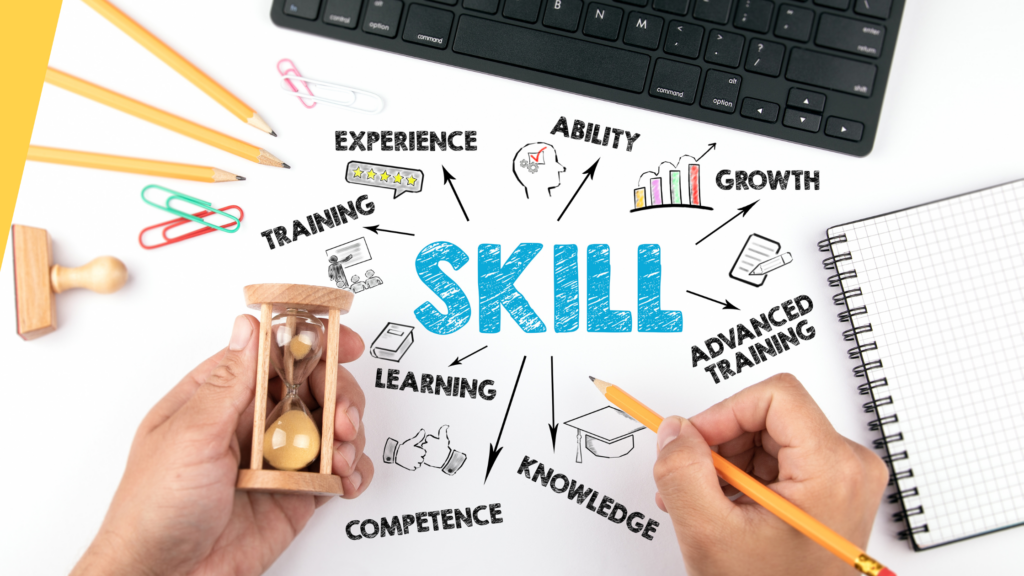
List of Example Weaknesses
Messy desks are common, and this is a relatable and easily fixable weakness. Ensure to note that disorganisation will not affect your job ability, but to perform at 100%, acknowledge that this mess can impact your efficiency. Therefore, working on keeping your space cleaner/tidier by putting time aside to get yourself together will improve your performance.
You can use this to demonstrate a new skill and your flexibility. If you feel that you prefer to take on and finish tasks yourself or had to activley learn how to delegate in your last role, you can use this as a weakness. Discuss a system you use to manage this; it displays initiative to the interviewer and successful implementation of a new process.
In your last role, if you hesitated to provide constructive feedback to coworkers without fear of hurting their feelings, use this to show how you turned your weaknesses into strengths. Mention an instance in your previous role where you helped a co-worker with feedback, and from this, you realised criticism, when delivered correctly, is helpful and kind.
Similarly, a lack of tactfulness when delivering feedback can also be a weakness. If you have a blunt and honest nature, it doesn’t always come across as intended, so you could talk about how you’ve been building better relationships in the workplace or doing a leadership course.
If your role is not centred around public speaking, this is great to use as a weakness. You can highlight that you don’t need to use this skill much in your role but feel it is essential anyway and how you plan to work on this, whether speaking in team meetings or techniques to help you relax and see that public speaking helps others. Displaying your wishes to improve skills not necessarily needed in your role showcases maturity and your dedication to self-improvement.
6. Weak Data Analysis Skills
7. Indecisiveness
8. Too Much Self-Criticism
9. Work-Life Balance Maintenance
10. Lack of PatienceWhich can all be turned into positives, and added examples of how you have improved, or will work on these creates more meaning behind these posts.
Go through these areas of consideration and prepare your answer to this all important question.
And if you have decided you’re ready for a New Chapter, contact us on info@newchapter.co.uk or take a look at our current vacancies.
Recent Blogs
Fine Wine Recruitment | Meet Faye
May 7, 2024New Chapter's Fine Wine Specialist Recruiter, Faye Rillstone talks about her career journey and thoughts on current wine recruitment trends.Essential Accessories for Your Desk
May 1, 2024Are you ready to spice up your workspace? Tired of the same dull desk? Here are some cool office items you need to liven up your workspace.How To: Change Industry within FMCG
April 23, 2024Are you planning to switch industries within FMCG? Our guide will help you successfully navigate this transition. -

Uncover Your Strengths Before Interviews
Continue ReadingInterview Success: Uncovering Your Strengths
Identifying your strengths should be a top priority when seeking your next career opportunity. By clearly understanding your strengths and weaknesses, you can effectively present yourself to prospective employers, setting yourself apart from the competition. Tailoring your skillset to align with your industry and the desired role is the key to proving that you are the perfect fit.
The SWOT analysis (Strengths, Weaknesses, Opportunities, Threats) is a useful tool to assist you with this. Normally used in a business context, the SWOT analysis can be adapted for personal use to highlight strengths and weaknesses, discover potential opportunities, and address any obstacles that might stop you from getting that dream role or promotion.
So before heading on your job search, dive into these four areas of reflection and learn more about yourself…
1. Discover Your Strengths
Identify the qualities that set you apart from the competition; these become your selling points to secure your next role. What do you do better than anyone else? What do you think others view as your strengths? Once you’ve pinpointed your strengths, it’s crucial to understand how they compare to your competition.
Examples of strengths include adaptability, problem-solving, communication, leadership, time management, creativity, teamwork, attention to detail, positive attitude, and dependability. Select a few strengths and establish connections between them and your previous role, showing how they enhanced your performance.

2. Confront Your Weaknesses
What areas can you improve upon? What should you avoid? Take a close look at your skillset to identify any obstacles hindering your personal and professional growth. Reflect on what others may consider as your weaknesses and if you’re unsure… ask them! Invest the time to work on these areas before pursuing your next role.
Be prepared to discuss your these and explain how you plan to overcome them. Our next few blogs will show you how to find them and the best ways to answer the all important ‘What are your weaknesses?’ questions in interviews.
3. Spot Opportunities for Growth
In terms of opportunities, it is important to identify external factors that you can take advantage of to find a new role or achieve a promotion. Evaluate your industry’s growth potential, if it’s on an upward trajectory, keep an eye out for new roles. Opportunities can also be found in your current workplace; does your employer offer any training opportunities? Explore the potential for this and take advantage of any further education or resources offered to enhance your qualifications and position yourself for future promotions.
Remember identifying and utilising opportunities will be a huge benefit to your career journey. Stay proactive, stay curious, and stay open to new possibilities.
4. Overcome Potential Threats:
It’s important to identify any threats to your career progression. Is there competition for the jobs you’re most suited to? Are there limited roles available in your industry? Are the industry demands changing? If this is the case, it’s crucial to seek out any to help you overcome these threats.
For example, if there is strong competition, seek opportunities to enhance your strengths and stay ahead of the competition.

Go through these areas of consideration and make notes on what you find. Considering these four areas will put you in the best position when seeking your next role and will enable you to truly take advantage of your own strengths, but also any opportunities for progression.
And if you have decided you’re ready for a New Chapter, contact us on info@newchapter.co.uk or take a look at our current vacancies.
Recent Blogs
Fine Wine Recruitment | Meet Faye
May 7, 2024New Chapter's Fine Wine Specialist Recruiter, Faye Rillstone talks about her career journey and thoughts on current wine recruitment trends.Essential Accessories for Your Desk
May 1, 2024Are you ready to spice up your workspace? Tired of the same dull desk? Here are some cool office items you need to liven up your workspace.How To: Change Industry within FMCG
April 23, 2024Are you planning to switch industries within FMCG? Our guide will help you successfully navigate this transition. -

Navigating Pregnancy as an FMCG Recruiter
Continue ReadingNavigating Pregnancy as an FMCG Recruiter
Hello, job hunters, hiring managers, and soon-to-be mums! As a dedicated recruitment consultant working in the Beauty and Retail sector my days currently revolve around creating connections and matching talent with their dream opportunities. The beauty and retail industry has been my focus for over 5 years. I recently found out some exciting and slightly terrifying news: I’m pregnant! The pregnancy news gave me a new appreciation for maternity FMCG products and companies, many of which are now guiding me through this exciting journey of motherhood.
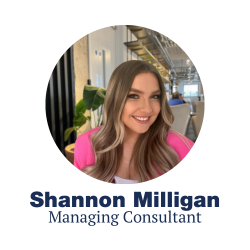
Pregnancy Skincare: Defying Beauty Stereotypes
Navigating society’s expectations for flawless skin during pregnancy can be overwhelming. Since the news of my pregnancy, a concern has been the possibility of stretch marks. As women, we’ve been conditioned to believe that these marks detract from the beauty of pregnancy. However, as I embark on the journey of growing a genuine, whole human being (a thought that still seems crazy), my focus has shifted away from mere external appearances. Rather than fixating on how my stomach looks, my attention has turned to more meaningful thoughts and feelings.
Among my priorities is maintaining a daily pregnancy skincare routine for my growing bump, and everyday comfort. Through meticulous trial and error, I have explored many different products that have become my favourites and I would love to share them with you all.

Tried and Tested FMCG Pregnancy Skincare Products
Original Bio-oil – I have found this oil the best to soothe the itchiness that can come with pregnancy. The best part? You only need a small amount, so it lasts much longer than other products.
Try Mama Mio’s Tummy Oil Rub for a light and gentle option. It’s kind to animals and the planet. Plus, it’s got Omega oils and vegan ingredients that are good for your skin.
Another Mama Mio product but this one is for luxurious Comfort. When you want something rich and fancy, Mama Mio’s Tummy Rub Cream is the answer. It smells great, doesn’t leave your skin oily, and makes your skin super smooth and healthy.
If you’re up for a bit of a splurge, Clarins’ Tonic Body Treatment Oil is worth it. It’s made from pure plant oil, and your skin will feel super soft, just like a baby. I’ll definitely keep using this one after pregnancy!
Summer Fridays’ Babymoon Belly Balm is a must-have. It’s one of my favourites because everything about it is great – the packaging, the ingredients, and the results. THis belly balm is doesn’t need water, and it’s vegan. It’s been a constant companion for the last 7 months, keeping my skin hydrated and smooth where I need it most.
As a collective of empowered women, we’re dismantling beauty negativity and choosing to centre our attention on our health and well-being. I will be creating a series of my recommendations so If you’re curious about other brands that have resonated with me during my pregnancy journey, please keep an eye out for my future blogs.
Feel free to also contact me directly if you want to share your own pregnancy ‘must haves’ or if you’re looking to hire/looking for a new role: shannon.milligan@newchapter.co.uk. I look forward to hearing from you.
Recent Blogs
Fine Wine Recruitment | Meet Faye
May 7, 2024New Chapter's Fine Wine Specialist Recruiter, Faye Rillstone talks about her career journey and thoughts on current wine recruitment trends.Essential Accessories for Your Desk
May 1, 2024Are you ready to spice up your workspace? Tired of the same dull desk? Here are some cool office items you need to liven up your workspace.How To: Change Industry within FMCG
April 23, 2024Are you planning to switch industries within FMCG? Our guide will help you successfully navigate this transition. -
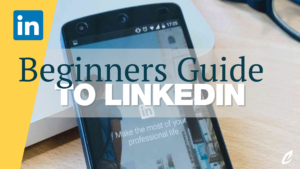
A LinkedIn Guide For Beginners
Continue ReadingA LinkedIn Guide For Beginners
In today’s technology-obsessed world, even the business realm is glued to social media. As of June 2023, LinkedIn had more than 930 million members across 200+ countries and territories worldwide. It’s time to get in on the action!
We’ve all been there – LinkedIn can be a bit confusing. But don’t worry, we’ve put together a handy guide to help you utilise LinkedIn to your advantage. It is the ultimate platform for career advice and guidance.
Step 1: Advance Your Profile
To embark on your LinkedIn journey, start by creating a compelling profile that sets you apart from the crowd. Begin with a high-quality, friendly photo that showcases your professionalism and approachability.
It is crucial to include a headline and summary that highlights your expertise and career aspirations. Incorporating keywords relevant to your industry or sector throughout your profile will make it easier for companies to find you.
Step 2: Connect with EVERYONE!
Most importantly it’s time to start building your network! Identify the industry or company where you envision yourself in the future and search for professionals in similar positions. By doing so, you can assess their career paths and gain insights into how they achieved their dream roles.
While you’re adding people, don’t forget to utilise the note feature. Putting a little bit of effort into a note can go a long way, especially when connecting with more senior profiles. Make it personable and punchy, mentioning why you’re adding them. These tips will help you stand out from the crowd of individuals.
We also highly recommend connecting with recruiters at New Chapter. We will be able to assist you in contacting the hiring team at your dream FMCG companies and also advise you on your CV and career path.

Step 3: Stay active
Gather a list of companies you’d love to work for, and follow them to stay updated with their posts, job openings, and company updates. These can be used in emails and messages as brilliant icebreakers, where you can tell them how much you love their new products. This approach can lead to warmer responses when networking and enquiring about potential roles.
After connecting, stay active on LinkedIn by engaging with posts on your feed. Building meaningful connections through engagement can lead to potential job opportunities in the future.
Step 4: Join events in your industry.
Now it’s time to further engage with professionals in your industry. One way to do this is by joining LinkedIn groups relevant to your interests. Participate in discussions, ask questions, and share insights to build your network.
Additionally keep your eye out for virtual events, webinars, and workshops hosted by industry professionals or companies that catch your attention. These events are a great way to network and meet new people, but also increase your FMCG knowledge.

Step 5: Update your profile!
Lastly, don’t forget to do consistent updates on your profile.
To establish yourself in your field, start sharing articles, blog posts, or original content related to your industry. This demonstrates your passion and knowledge while increasing your visibility on LinkedIn. Don’t hesitate to mix it up with more personable posts to showcase your personality.

If you are a recent graduate or just new to LinkedIn, we hope these tips guide you towards becoming a stand-out candidate on LinkedIn. And if you’re seeking a role within the FMCG industry, contact us on info@newchapter.co.uk and our consultants can help you find your dream role.
Remember, LinkedIn is not just a platform for job hunting; it’s a powerful tool for building your professional network. Consistency and authenticity are key, so invest time in cultivating relationships and showcasing your passion for your chosen industry. Best of luck in your career journey!
Recent Blogs
Fine Wine Recruitment | Meet Faye
May 7, 2024New Chapter's Fine Wine Specialist Recruiter, Faye Rillstone talks about her career journey and thoughts on current wine recruitment trends.Essential Accessories for Your Desk
May 1, 2024Are you ready to spice up your workspace? Tired of the same dull desk? Here are some cool office items you need to liven up your workspace.How To: Change Industry within FMCG
April 23, 2024Are you planning to switch industries within FMCG? Our guide will help you successfully navigate this transition. -

Stay Active Despite Your Desk Job
Continue ReadingStay Active Despite Your Desk Job
The benefits of staying active are endless. Not only does it reduce the risk of heart attacks and diabetes, but it also works wonders for lowering cholesterol and blood pressure. And let’s not forget that it produces endorphins – exercise gives your mind a boost by reducing stress and lifting your mood. Health pros and researchers recommend a minimum of 30 minutes of moderate physical activity on most (if not all) days.
We totally get it – office life makes it difficult to stay active. Being glued to your desk, reduces the amount of exercise available throughout the day and also means a lot of us are too tired to visit the gym once we get home.
Staying active is a must for better mental and physical health. So how can you stay active whilst working a desk job?

Bike or Walk to Work
Cycling or a leisurely stroll is a great way to squeeze in some exercise. It may increase your commuting time, but it saves you money and even helps the environment. Plus cycling improves your cardio-vascular and aerobic fitness, ultimately making you happier at work. Who doesn’t want that?
Keep your Body Moving
We know, staying active during the day is a challenge, but there are a few ways of combating the low mood that comes with sitting down all day. Firstly, ditch the lift and opt for the stairs which burns calories and increases your heart rate. Alternatively, if you drive, something simple like parking your car further away will increase the distance it takes you to walk to work and adds those extra steps into your day. And for those who work from home, take a look at the under desk walking treadmills – a great way to multitask!


Eat Well
Eating well increases energy levels which makes it easier to stay active throughout the day. Increase your fruit, veg and protein intake is a great way to boost your vitamins and energy. This makes for a better mood and increases mental and physical productivity.
Stand Up Regularly
Find reasons to stand up more often. Stand at the printer or treat yourself to making more coffees. Perhaps you could even walk around when making calls. These are all simple ways to get your blood flowing and raise your heart rate. Standing desks can also allow you to alternate between sitting and standing, whilst staying at your desk.


Get Active on your Lunch
Use your lunch break to get active! On average, we spend 8-10 hours a day at our desks so go for a quick walk or run or visit the nearest gym for a quick session. Working out on your lunch break increases performance by 15% and reduces that post-lunch slump.
Here at New Chapter, we offer extended gym lunch breaks to all our employees, it increases production and reduces that afternoon slump.
If you’re looking for a new role or company that prioritises health and offers many benefits such as gym lunches; contact us on info@newchapter.co.uk to find out about our clients current opportunities.
Recent Blogs
Fine Wine Recruitment | Meet Faye
May 7, 2024New Chapter's Fine Wine Specialist Recruiter, Faye Rillstone talks about her career journey and thoughts on current wine recruitment trends.Essential Accessories for Your Desk
May 1, 2024Are you ready to spice up your workspace? Tired of the same dull desk? Here are some cool office items you need to liven up your workspace.How To: Change Industry within FMCG
April 23, 2024Are you planning to switch industries within FMCG? Our guide will help you successfully navigate this transition. -

Mastering Zoom Interviews in the FMCG Industry
Continue ReadingMastering Zoom Interviews in the FMCG Industry
Since the Covid pandemic, online interviews have gained popularity, with at least one stage typically being remote. This interview style offers convenience, efficiency, and flexibility for both candidates and employers. However, it is essential to note that online is just as important as in-person interviews, and require preparation, professionalism, and an extra factors.
If you’re searching for your dream job in the FMCG industry we’ve got you covered! Here are some tips to help you make a lasting impression and stand out from the competition:
Test your Tech
Ensure that you have a stable internet connection, a functional camera, and a microphone in order to avoid any potential technical disruptions during the call. It is crucial to review the diary invitation to determine which video software will be used for the call. If necessary, download the required application in advance to be well-prepared and avoid last-minute hassles.
A few examples of the video technology they might use for your FMCG Interview:
Familiarise yourself with the video software’s features, especially screen sharing and mute options, to facilitate a smooth and seamless interview process. Being acquainted with these features will help you navigate the call effortlessly and ensure effective communication.

Top LocationHaving a quiet space with good lighting is essential. An uncluttered background to show professionalism is ideal. Opt for natural light whenever you can, but if that’s not possible, ensure you have a light source in front of you so that your video is clear.
Appropriate Attire
Approach a zoom interview no differently to an in-person interview. Pay attention to appropriate attire which will help you to make a good first impression and boost your confidence.
Be punctual
Treating online interviews, the same as an in-person interviews also applies to your punctuality. Logging in a few minutes early and checking your set up to be prepared when the interviewer joins the call is crucial. It demonstrates your time management skills to the company and also your respect for their time.

Maintain eye contactWhile you may perceive this as less important, since you aren’t face-to-face with the interviewer, looking into the camera instead of yourself on the screen will create the impression of direct eye contact and enable you to better connect with the interviewer.

Prepare Common Answers
As you would for any interview, make sure to research typical FMCG questions and rehearse your responses beforehand. Familiarising yourself with the industry and being able to discuss your skills will make you feel more confident during the interview. If you aren’t sure of the questions that may arise, check out our blog on the 10 Most Common Interview Questions here.

Body LanguageYour body language is still important even over video, so make sure you sit up and maintain a confident posture. Avoid closed-off body language, such as crossing your arms or resting your hands on your face.
Show your Enthusiasm
Make sure to demonstrate passion for the industry, role, and company you are interviewing for. Genuine interest goes a long way with employers, and showing enthusiasm becomes easier when you have researched the brand and are aware of their long-term goals. Aligning your aspirations with theirs can leave a positive impression, not only regarding the job role but also how you fit into the company culture and values as a whole.
Prepare Questions
Just like knowing the answers to questions, make sure you are well-prepared with the questions you want to ask about the role or company. This demonstrates your genuine interest, and by having enough questions will ensure you are prepared even if some are already addressed during the interview.

Prepare Visual Aids
You can enhance your interview by having appropriate work samples, portfolios, or presentations ready to showcase. Being prepared with examples allows you to quickly screen share and confidently talk through your content.
Zoom interviews are your chance to shine and are every bit as important as in-person interviews! Make sure you’re well-prepared to impress potential employers. After the interview, follow up with a thank you email to express your appreciation for their time and reiterate your interest in the opportunity. For more general interview advice, take a look at some of our other blogs.
If you’re looking for a role in the FMCG industry, contact us today info@newchapter.co.uk, and our consultants will be with you every step of the way until you secure your dream role.
Recent Blogs
Fine Wine Recruitment | Meet Faye
May 7, 2024New Chapter's Fine Wine Specialist Recruiter, Faye Rillstone talks about her career journey and thoughts on current wine recruitment trends.Essential Accessories for Your Desk
May 1, 2024Are you ready to spice up your workspace? Tired of the same dull desk? Here are some cool office items you need to liven up your workspace.How To: Change Industry within FMCG
April 23, 2024Are you planning to switch industries within FMCG? Our guide will help you successfully navigate this transition. -

A Guide to Successfully Transitioning to a...
Continue ReadingA Guide to Successfully Transitioning to a New Company
Starting at a new company is both exciting and challenging, whether you’re changing industries or advancing your career, a successful transition is crucial for long-term success.
Today, we will explore strategies and tips to help you navigate the process and make the transition smooth.
Building Relationships
Effective relationship-building is key to a successful career transition. Connect with your new colleagues within your team and across departments. Aim to introduce yourself and engage in conversations to build positive relationships from the start, to create a supportive environment and allow for collaboration.

Understanding Expectations
Clarify these expectations with your manager and team to gain a clear understanding of your performance indicators. Ask for feedback regularly and address concerns and questions early on. By aligning your goals, you can set yourself up for success within the company.
Researching and Preparing
Before starting your new role, take time to research everything you can about the company. Familiarise yourself with their values, culture, and the industry whilst being clear on your new responsibilities, objectives, and expectations. This will not only help you to hit the ground running but also demonstrate your enthusiasm to the role.
Learning from Colleagues
Utilise your team’s experience and take advantage of onboarding programs, training sessions, and opportunities offered to you. This will allow you to gain insight into the company culture and workflow, and the knowledge and guidance will help you adapt quickly to your new role.

Managing Priorities and Time
Transitioning to a new role can be overwhelming, with new projects and deadlines to manage. Therefore, developing effective time management skills is crucial. Communicate with your manager and team to set realistic deadlines, allowing you to settle in, find your feet, and stay on top of your responsibilities. Useful tools like motion and monday.com can help you keep on track.
Embracing a Learning Mindset
Approach your new role with a growth mindset and be ready to learn skills and knowledge. Being proactive and seeking learning opportunities will not only help you succeed in your role but also set you up for future growth.

Whilst a new role may be daunting, it will provide opportunities for growth, learning and development. By following our tips, you can set yourself up for success. With the right mindset and approach, you will be on your way to excelling in your new role!
If you would like further advice on transitioning into a new role, get in touch with us today at info@newchapter.co.uk. Our experienced consultants can guide you through this process!
Recent Blogs
Fine Wine Recruitment | Meet Faye
May 7, 2024New Chapter's Fine Wine Specialist Recruiter, Faye Rillstone talks about her career journey and thoughts on current wine recruitment trends.Essential Accessories for Your Desk
May 1, 2024Are you ready to spice up your workspace? Tired of the same dull desk? Here are some cool office items you need to liven up your workspace.How To: Change Industry within FMCG
April 23, 2024Are you planning to switch industries within FMCG? Our guide will help you successfully navigate this transition.
